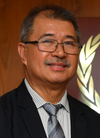1723 Sanaman general election
| ||||||||||||||||||||||||||||||||||||||||||||||||||||||||||||||||||||||||||||||||||||||||||||||||||||||||||||||||||
All 483 seats of the House of People's Delegates 242 seats needed for a majority | ||||||||||||||||||||||||||||||||||||||||||||||||||||||||||||||||||||||||||||||||||||||||||||||||||||||||||||||||||
|---|---|---|---|---|---|---|---|---|---|---|---|---|---|---|---|---|---|---|---|---|---|---|---|---|---|---|---|---|---|---|---|---|---|---|---|---|---|---|---|---|---|---|---|---|---|---|---|---|---|---|---|---|---|---|---|---|---|---|---|---|---|---|---|---|---|---|---|---|---|---|---|---|---|---|---|---|---|---|---|---|---|---|---|---|---|---|---|---|---|---|---|---|---|---|---|---|---|---|---|---|---|---|---|---|---|---|---|---|---|---|---|---|---|---|
| Turnout | 77,612,212 (88.73%) | |||||||||||||||||||||||||||||||||||||||||||||||||||||||||||||||||||||||||||||||||||||||||||||||||||||||||||||||||
|
| ||||||||||||||||||||||||||||||||||||||||||||||||||||||||||||||||||||||||||||||||||||||||||||||||||||||||||||||||||
|
File:SNM 1723 elections.png | ||||||||||||||||||||||||||||||||||||||||||||||||||||||||||||||||||||||||||||||||||||||||||||||||||||||||||||||||||
| ||||||||||||||||||||||||||||||||||||||||||||||||||||||||||||||||||||||||||||||||||||||||||||||||||||||||||||||||||
The 1723 Sanaman general election was held on 12.X and was the fourth elections following the 1707 change of political system. The sitting Qukalsim Kito Paliso was seeking a second term, with Toti Lampa of the United Revolutionary Front and Darius Hosseini of the Party of Democratic Humanism his main competitors. Following the victory of the National Alliance in the 1719 elections, expectations were high for the new government. However, rampant and growing corruption all across the national government, paired with infighting within the alliance and tensions between both Qukalsim Paliso and Talo Kalani and their respective parties, resulted in four years of ineffective government. This combined with a sluggish economy caused the approval ratings for the new government to plummet. However, commanding comfortable majorities in all three houses of the Lhusan Nasyonal, the government was safe from attempts to depose it. Elections were also held to the assemblies of the people's republics, as well as local and regional assemblies.
Participating parties
List of participating parties
Constituencies per people's republics
House of People's Delegates elections
Seat results
House of Councillors elections
Seats per sector
Estimated party breakdown
Council of People's Republics delegations
Seats controlled
Results
Rampant corruption, a lethargic government, a stagnant economy and growing unemployment contributed to a victory for the recently-formed Workers' Revolutionary Front. Even though polling ahead of the election had shown the WRF and the Party of Democratic Humanism in front, the WRF winning a majority in their own right came as a shock to the political system. Further, the massive reduction in support for the National Alliance and the complete collapse of the Sanamati Democratic Party were also surprise results. On 15.XII.1723, only three days after the opening of the new parliament, President Sino Lanto Yali appointed Toti Lampa Qukalsim. Following the election, the Party of Democratic Humanism staged several largeä-scale protests in Niyi, Fatehpur Sikri, Semisa City and various other cities across the country. Following the appointment of the new government, renewed protests were staged, claiming election fraud and calling for new elections. Qukalsim Lampa denied the allegations, claiming them to be nonsensical since the Workers' Revolutionary Front was a newly formed party completely outside state governance. He also vowed to restore order and public safety and lambasted PDH leader Darius Hosseini for orchestrating violence against the new government.




